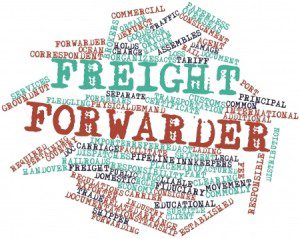 Freight forwarders are people or companies that organize the shipment of goods on behalf of their customers (individuals or businesses). They play an important role in logistics by helping manufacturers acquire the raw materials they need and distribute the finished products to customers through the various stages of the supply chain. Since a lot of businesses depend on a global supply chain these days, they use international freight forwarders to streamline their shipping process.
Freight forwarders are people or companies that organize the shipment of goods on behalf of their customers (individuals or businesses). They play an important role in logistics by helping manufacturers acquire the raw materials they need and distribute the finished products to customers through the various stages of the supply chain. Since a lot of businesses depend on a global supply chain these days, they use international freight forwarders to streamline their shipping process.
Freight forwarders do not move the good themselves, but fulfil the role of experts in the supply chain management. They do not own equipment, trucks and storage facilities. They contract with carriers to move cargo from one geographical location to another and may use a variety of shipping providers, including trucks, railroads, ships and airline. International freight forwarders handle international shipments and are experts in preparing documentation and providing services pertaining to international shipments.
International freight forwarders help streamline the shipping process by preparing and reviewing the following documents without which goods cannot be shipped.
Commercial invoice:
A commercial invoice is a document used by companies involved in foreign trade. It serves as the customs declaration provided by the individual or business that is exporting the goods across international borders, and is used to calculate tariffs.
There is no standard format for the invoice; however, it must contain specific information such as the goods being shipped, the country of manufacture, parties involved in the transaction, the harmonized system codes for the goods, and a statement certifying that the invoice is true.
Shipper’s Export Declaration:
A shipper’s export declaration (SED) is a document that serves as a census record of exports and as a regulatory document. In the USA, the SED is mandatory for shipments of goods whose value exceeds $2,500 per Schedule B number and $500 for postal shipments. This document is necessary for the shipment of goods from the USA to Canada, but is not required for shipment from Canada to the USA.
Bill of Lading:
A bill of lading (abbreviated as a BOL or B/L) is an important document required for the shipment of goods. It is generated by the individual or company exporting the goods. It contains details of the goods of merchandise and gives ‘title’ to the carrier with specific instructions to release the goods to a named party at the destination.
The bill serves as a receipt, which can be used a proof of shipment for customers and insurance purposes, as a title conferring title to the goods to the consignee noted on the bill, and as a negotiating document that may be traded in the same way as the goods.
NAFTA Certificate of Origin:
The NAFTA Certificate of Origin is a document required to be filled by the exporter for goods that qualify for reduced or duty-free entry as a product of one of the three member nations: Canada, USA and Mexico.
Every country has its own rules and requirements on the import and export of goods. International freight forwarders have good knowledge of the rules and are able to expertly prepare the above-mentioned and other documents to make the movement of merchandise across international borders fast, smooth and hassle-free.
If you’re looking for cross-border shipping and logistics services to and from Mexico, give 3PL Links a call.


